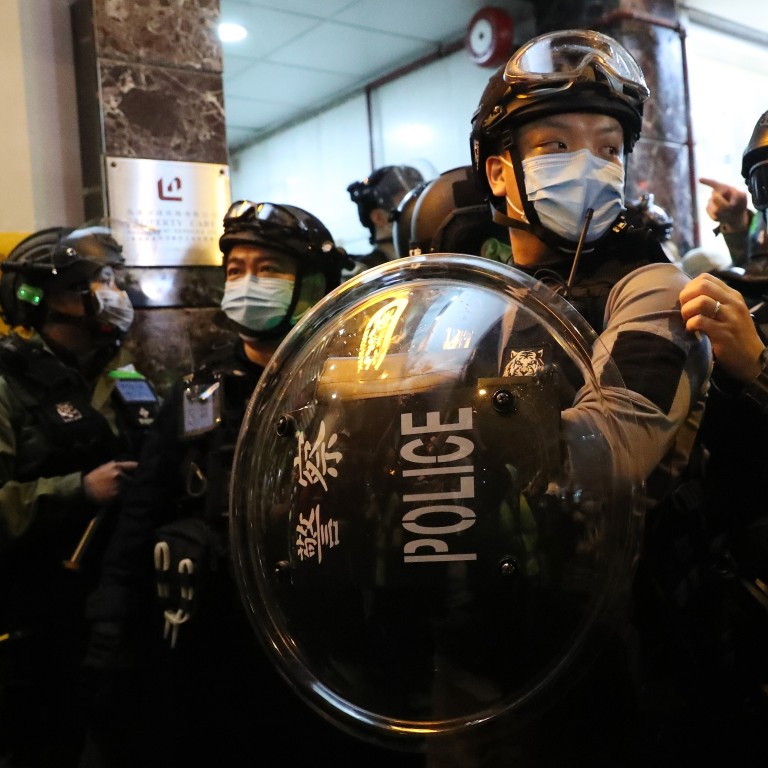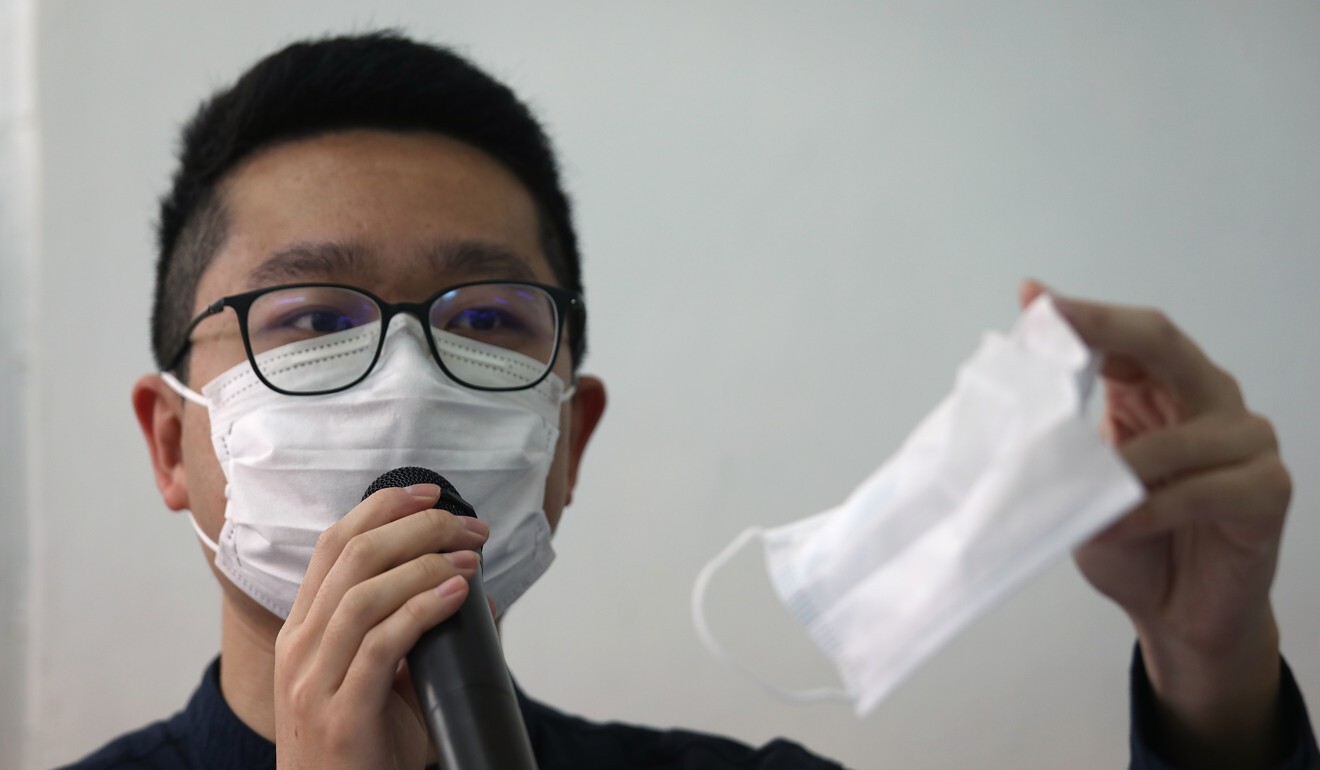
Coronavirus: Hong Kong police to let detainees wear full surgical masks to fend off Covid-19
- Lawyers and doctors had said the force’s previous policy, of removing metal strips from the commonly worn coverings, left arrested people at risk of infection
- Those detained will now be given masks made by prisoners at factories run by Correctional Services Industries
Hong Kong police will give detainees proper surgical masks to wear during the coronavirus epidemic, after it was lambasted for forcing arrested anti-government protesters to don face coverings which lacked metal strips to hold them in place.
The use of such wireless masks had sparked concerns from doctors and the arrestees’ lawyers, who said the lack of a metal strip, which fixes the mask around the bridge of the nose, meant a higher risk of infection.
Explaining its “adjustment of detention policy” on its Facebook page on Friday, the force confirmed reports that it earlier provided some detainees with two-layer wireless masks, as opposed to the three-ply coverings worn daily by almost all Hongkongers.
Defending the previous policy, the force said: “In the past, there were instances of detained persons committing self-harm using the wires embedded in surgical face masks. In light of the risk, the police had earlier provided detained persons with two-ply face masks with no embedded wires.”

The detainees in question were among 54 people arrested for illegal assembly and other offences at Prince Edward MTR station on Tuesday night. They were marking seven months since a controversial clearance operation inside the station, when police were accused of indiscriminately using pepper spray on protesters and other passengers on trains.
In the Facebook post, the force said that since Thursday it had provided detainees with surgical masks made by prisoners at factories run by Correctional Services Industries, after considering “the development of the epidemic and the safety of detainees”. The prisoner-made masks, known as CSI masks, are three-ply coverings commonly used by officials, police officers and civil servants.
The force added that it attached the utmost importance to the security of detention facilities, as well as the safety of detainees and those who come into contact with them, while protecting their privacy, dignity and rights.
Before police made their new policy known, Ben Lam Siu-pan, who represents Mong Kok East on Yau Tsim Mong District Council, and who helped some of the arrestees, slammed the use of wireless masks at a press conference on Friday.
Displaying the masks to reporters, he said: “How dangerous are those thin metal strips embedded in the masks? ... Their move put protesters at risk of infection.”
Applause rings out in Hong Kong for health workers on Covid-19 front line
He also condemned the force for asking him and the lawyers to tear open the coverings to take out the strips inside before handing their own supplies to police.
Dr Leung Chi-chiu, chairman of the advisory committee on communicable diseases at the Hong Kong Medical Association, said that, from a public health perspective, it was not a good idea to request anyone to tear open the coverings and take out the strips inside.
“Without metal strips, masks will become too loose to firmly cover the face area. They will not perform the proper function of blocking the virus,” he said.
He said that, as police cells are usually poorly ventilated, the force should take extra precautions to prevent the spread of the virus.

